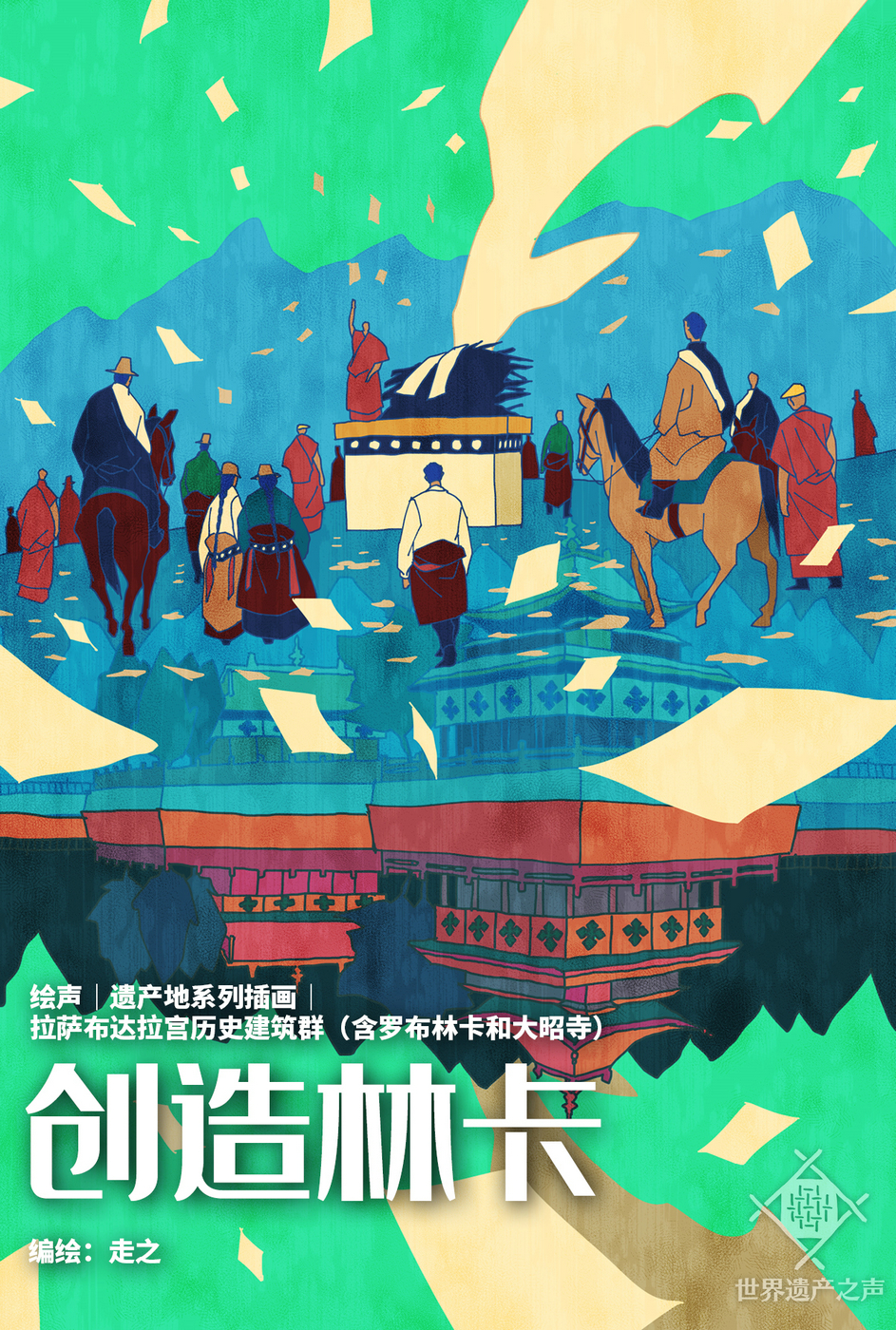
In Tibetan, Lingka means garden, and also means wild woods. The Tibetan custom of going for a walk in the country originated from bsang mchod (“rites of smoke purification”), and gave rise to traditional Tibetan gardens. During the 13-17th centuries, manor gardens, fortress gardens, temple gardens and other types of gardens appeared. In the 18th century, the Grand Minister Resident in Tibet of the Qing Dynasty built the Wuyao Phobrang for the seventh Dalai Lama. The phobrang became the first building in Norbulingka. After expansion, Norbulingka, an exquisite palace garden built for religious and political purposes and deeply influenced by Han Chinese culture, appeared.






